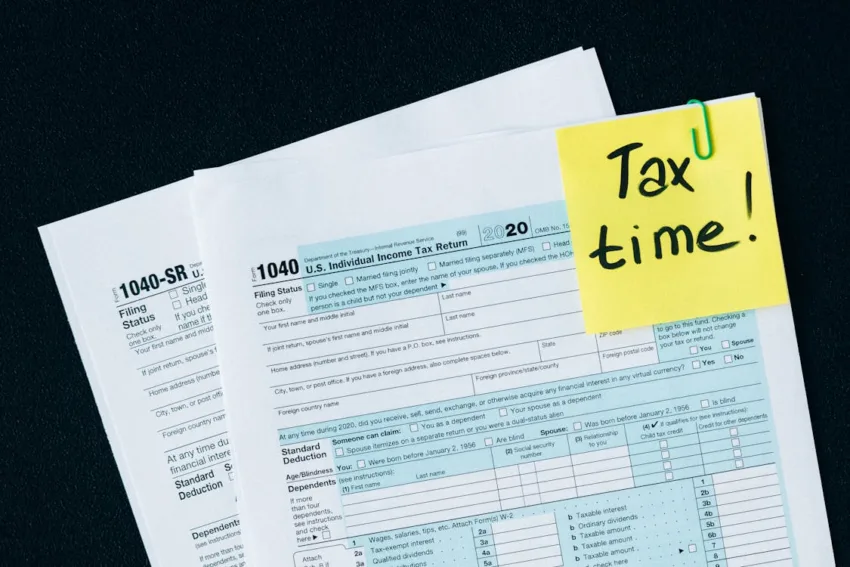Wondering when will tax refunds be issued 2024? Explore this comprehensive guide to learn about the expected timeline, factors affecting refund processing, and FAQs regarding tax refunds.
Introduction
Tax season is a period of anticipation for many individuals eagerly awaiting their refunds. Knowing when will tax refunds be issued 2024? is crucial for planning finances and managing expenses. In this guide, we’ll delve into the expected timeline for tax refunds in 2024, factors influencing refund processing, and answer common FAQs to provide clarity and assistance to taxpayers.
Understanding Tax Refund Timelines

When Will Tax Refunds Be Issued 2024?
Tax refund timelines can vary based on several factors, including the method of filing, complexity of the return, and IRS processing procedures.
Factors Influencing Refund Processing
- Filing Method: E-filing typically results in faster processing and refunds compared to traditional paper filing.
- Accuracy of Information: Errors or discrepancies in tax returns can delay refund processing. Double-checking information before submission is crucial.
- Claiming Tax Credits: Claiming tax credits or deductions may prolong processing time, especially if additional documentation is required.
- IRS Processing: The IRS’s workload and efficiency can impact refund timelines, with peak tax season experiencing higher volumes and potential delays.
Timeline for Tax Refunds in 2024
Taxpayers can generally expect refunds within three weeks of filing electronically, provided there are no complications. However, it’s essential to note that individual circumstances may vary, and some refunds may take longer to process. When Will Tax Refunds Be Issued 2024?
Understanding Tax Refund Processing

Tax refund processing is a vital aspect of the tax filing process, and understanding how it works can help taxpayers navigate the system more effectively.
Key Factors Affecting Tax Refunds

When it comes to tax refunds, several key factors can influence the processing time and outcome. One of the primary factors is the method used for filing taxes. When Will Tax Refunds Be Issued 2024?
Filing Method

The method chosen for filing taxes, whether electronic or paper, can significantly impact the speed and efficiency of refund processing. Electronic filing, or e-filing, is generally faster and more secure than traditional paper filing methods. Taxpayers who file electronically often receive their refunds more quickly due to the automated processing systems used by the IRS. When Will Tax Refunds Be Issued 2024?
Accuracy of Information

Another critical factor affecting tax refund processing is the accuracy of the information provided on the tax return. Inaccurate or incomplete information can lead to delays in processing as the IRS may need to verify the details before issuing a refund. Therefore, it’s essential for taxpayers to double-check all information before submitting their tax returns to ensure accuracy. When Will Tax Refunds Be Issued 2024?
IRS Refund Timelines
Understanding the expected timeline for receiving a tax refund is essential for financial planning purposes. When Will Tax Refunds Be Issued 2024?
Expected Timeline

The IRS typically issues tax refunds within a few weeks of receiving a completed tax return. However, the exact timeline can vary depending on various factors, including the filing method and the complexity of the return. Taxpayers who file electronically may receive their refunds faster than those who file paper returns. When Will Tax Refunds Be Issued 2024?
Processing Delays
Despite the IRS’s efforts to process refunds promptly, certain factors can cause delays. Common reasons for processing delays include errors or discrepancies on the tax return, issues with direct deposit information, and the IRS’s workload during peak tax season. When Will Tax Refunds Be Issued 2024?
Tips for Expediting Refund Processing

Taxpayers can take several steps to expedite the processing of their tax refunds and ensure timely receipt of their funds.
E-filing
One of the most effective ways to expedite refund processing is by filing taxes electronically. E-filing reduces the likelihood of errors and allows for faster processing compared to paper filing methods.
Direct Deposit
Opting for direct deposit as the method for receiving a tax refund can further expedite the process. Direct deposit allows taxpayers to receive their refunds directly into their bank accounts, eliminating the need for paper checks and reducing the risk of mail delays.
Tracking Refund Status

Taxpayers can track the status of their tax refunds using various tools and resources provided by the IRS.
IRS Tools
The IRS offers online tools and resources for taxpayers to track the status of their refunds. One such instrument is the “Where’s My Discount?” tool, which allows taxpayers to check the status of their refund using their Social Security number, filing status, and refund amount.
Expected Wait Times
While the IRS strives to process refunds as quickly as possible, taxpayers should be aware that there may be some wait time involved. The IRS typically provides estimated wait times for refund processing based on various factors, including the filing method and the time of year.
Strategies for Maximizing Refunds

Maximizing tax refunds requires strategic planning and awareness of available deductions and credits.
Deductions and Credits
One effective strategy for maximizing tax refunds is to take advantage of available deductions and credits. Taxpayers should explore all eligible deductions and credits, such as those related to education expenses, home ownership, and charitable contributions.
Professional Assistance
Seeking assistance from tax professionals can also help taxpayers maximize their refunds. Tax professionals have the expertise to identify potential deductions and credits that taxpayers may overlook, ensuring that they receive the maximum refund possible.
Importance of Direct Deposit

Opting for direct deposit offers numerous benefits for taxpayers seeking faster access to their refunds.
Expedited Processing
Direct deposit expedites the processing of tax refunds by eliminating the need for paper checks and mail delivery. Taxpayers who choose direct deposit typically receive their refunds faster than those who opt for paper checks.
Avoiding Mail Delays
Direct deposit also helps taxpayers avoid potential delays associated with mail delivery. By receiving their refunds electronically, taxpayers can bypass the risks of lost or delayed mail, ensuring timely receipt of their funds.
Handling Mistakes on Tax Returns

Mistakes on tax returns can lead to processing delays and potential penalties, but they can be corrected with prompt action.
Common Errors
Common errors on tax returns include incorrect Social Security numbers, math mistakes, and missing or incomplete information. Taxpayers should carefully review their returns before filing to identify and correct any errors.
Filing Amended Returns
If errors are discovered after filing, taxpayers can file an amended return using Form 1040-X. Filing an amended return allows taxpayers to correct mistakes and prevent potential penalties or additional taxes owed.
Optimizing Tax Returns

Optimizing tax returns involves thorough organization, accurate information, and strategic tax planning.
Organization and Documentation
Organizing and maintaining thorough documentation is essential for accurate tax return preparation. Taxpayers should keep detailed records of income, expenses, deductions, and credits to ensure accurate reporting.
Accuracy and Verification
Ensuring the accuracy of information reported on tax returns is crucial for timely processing and compliance with IRS guidelines. Taxpayers should verify all information before submitting their returns to avoid processing delays or potential audits.
Conclusion
Understanding the key factors affecting tax refund processing is essential for taxpayers seeking to navigate the system effectively. By familiarizing themselves with refund timelines, expedited processing methods, and strategies for maximizing refunds, taxpayers can ensure a smoother experience during tax season.
FAQs About Tax Refunds
Can I Track My Tax Refund Status Online?
Yes, taxpayers can use the IRS’s “Where’s My Refund?” tool on their website to track the status of their refund.
What Should I Do If My Refund is Delayed?
If your refund is delayed beyond the expected timeline, you can contact the IRS for assistance or check the status online for any updates.
Are There Any Ways to Expedite Refund Processing?
While there’s no guaranteed way to expedite processing, ensuring accurate and complete information on your return can help avoid delays.
What Happens if There’s a Mistake on My Tax Return?
If you discover an error on your tax return after filing, you can file an amended return using Form 1040-X to correct any mistakes.
Does Claiming Tax Credits Delay Refunds?
Claiming certain tax credits or deductions may require additional verification, potentially extending the processing time for refunds.
Can I Receive My Refund via Direct Deposit?
Yes, opting for direct deposit is the fastest and most secure way to receive your tax refund.
What factors can cause delays in tax refunds?
Delays in tax refunds can be caused by various factors, including errors or discrepancies on the tax return, issues with direct deposit information, and the IRS’s workload during peak tax season.
How long does it take to receive a tax refund?
The timeframe for receiving a tax refund varies depending on factors such as the filing method and the complexity of the return. Typically, taxpayers can expect to receive their refunds within a few weeks of filing, provided there are no complications.
Can I track the status of my tax refund online?
Yes, taxpayers can track the status of their tax refunds using the IRS’s “Where’s My Refund?” tool, which allows them to check the status of their refund using their Social Security number, filing status, and refund amount.
What should I do if there’s a mistake on my tax return?
If errors are discovered on a tax return after filing, taxpayers can file an amended return using Form 1040-X to correct the mistakes.
Are there any strategies for maximizing tax refunds?
Yes, taxpayers can maximize their tax refunds by taking advantage of available deductions and credits, seeking professional assistance, and ensuring accurate and thorough tax return preparation.
When Will Tax Refunds Be Issued 2024?
Tax refunds for the year 2024 are typically issued within a few weeks after the IRS receives your tax return. However, the exact timing can vary depending on factors such as the method of filing and the complexity of your return. It’s recommended to file electronically and opt for direct deposit to receive your refund more quickly.
Conclusion
Understanding when will tax refunds be issued 2024? is fundamental for monetary preparation and overseeing costs. By considering the factors influencing refund processing and utilizing resources provided by the IRS, taxpayers can navigate tax season with confidence and clarity.
tax refund, tax refund 2024,tax refunds, tax refund 2023,tax refund status, irs tax refund 2023,tax refund update,2023 tax refund,2024 irs tax refund update,2024 tax refund, smaller tax refunds,tax refund issue date 2024,irs tax refunds,tax refunds 2024,wheres my refund, tax refund delay, tax refund schedule 2024,irs tax refund 2024,tax refund still being processed,2024 irs tax refund update new refunds released, tax refund delays 2024
